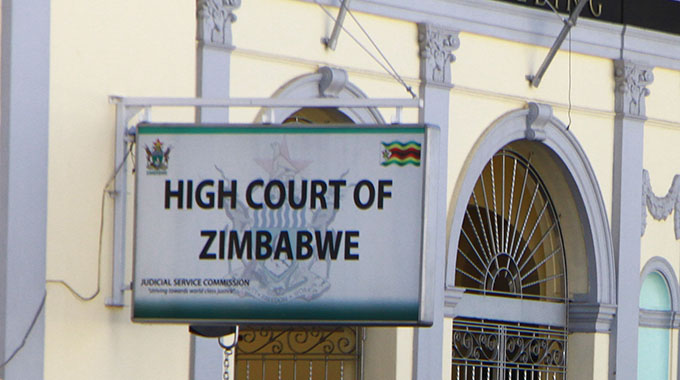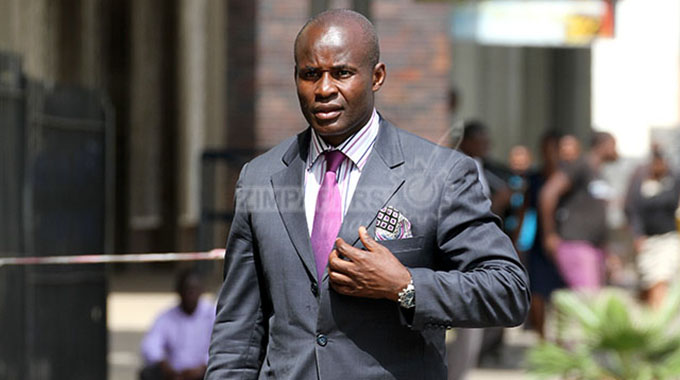Editorial Comment: Justice must be seen to be done

Reports that scores of convicted criminals are freely walking the streets of Harare despite losing their appeals are disturbing and an exhibition of laxity and corruption within the criminal justice system. When an appeal is thrown out by the High Court, the sentence previously imposed automatically becomes effective.
The Registrar of the High Court writes to the Clerk of Court communicating the development, prompting the lower court to issue a warrant of arrest for the criminal’s arrest.
Monthly, the Harare Magistrates’ Courts send out warrants of arrest to relevant police stations. The warrants are followed by a formal communication to the police’s officer-commanding (Propol) Harare province.
The communication to the Propol will have a list of the wanted convicts together with the police stations involved and the case numbers, for follow-up purposes.
Investigations by The Herald show that in Harare alone, there are 26 convicts out, and it is estimated that hundreds more could be free nationwide in a rot that has festered over the years, with some high-profile individuals involved.
It boggles the mind how a whole police service that is highly rated for making high-profile arrests and investigating complex cases can fail to apprehend criminals whose addresses are known to them.
It is unbelievable that the police can sit on a pile of warrants of arrest for convicts who should be serving in prison.
It leads one to the rhetorical question: “Who will police the police?”
This level of misconduct borders on corruption, to say the least.
Corruption has a cancerous effect to the moral fabric of the society and it must be nipped in the bud to restore sanity.
President Mnangagwa is on record as saying corruption, a socio-economic cancer that has continued to eat into the country’s moral fabric, must not be tolerated in the Second Republic.
What is happening on the ground unfortunately points to a different trajectory.
It is now time for the police, National Prosecuting Authority (NPA), Judicial Service Commission (JSC), Zimbabwe Prisons and Correctional Services (ZPCS), Law Society of Zimbabwe (LSZ) and other stakeholders to collectively put the vice to an end.
Those lax and corrupt elements in the police service must now wake up from slumber and play their part in the fight against corruption and proper discharge of their constitutional mandate.
They should either shape up or ship out because the Government cannot continue to pay a lazy, incompetent and corrupt lot that is not rendering any meaningful service to the State.
The convicts do not corrupt the system on their own.
They do so with the assistance of some unethical legal practitioners who play go-between and connect the criminals to the corrupt police officers.
Such shenanigans at times see the convicts buying their freedom by bribing police details sent to apprehend them.
In some cases, the officers lie that they have failed to locate the criminals when the culprits are reportedly seen enjoying their freedom in the streets of the capital.
Most of them immediately file notices of appeal against conviction and sentence to lay the basis of mounting a bail application pending determination of the appeal.
While out of custody, the convicts take advantage of the loopholes in the system and relax until the courts “forget” about their cases.
In terms of the criminal appeal process, the onus to prosecute the appeal lies with the appellant, who can choose to drag or abandon the appeal.
At times, the appellant deliberately changes lawyers to confuse the system resulting in some correspondences from the Registrar of the High Court being sent to wrong addresses.
Although the JSC has put in place administrative measures to plug the loopholes, some typists who prepare the records are reportedly being corrupted to delay and make unnecessary mistakes that drag the appeal process.
In some cases, the warrants take time to reach the police stations, a development that also delays the arrest of the convicted criminals.
There is also need to put in place some monitoring mechanisms to ensure the appellant, who has the burden to prosecute an appeal, does the honourable within reasonable time.
An investigation must be carried out within the police service and any bad apples weeded out. Not only must justice be done, it must also be seen to be done.










Comments